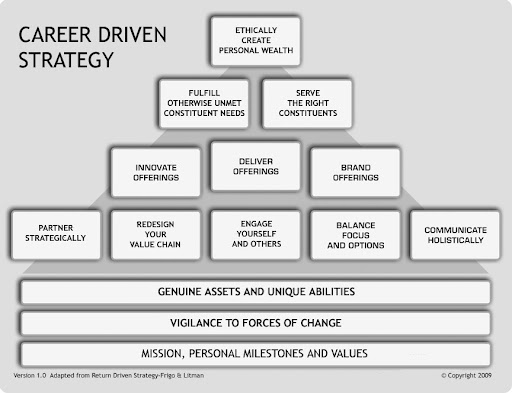Redefining Mobility: How is this company transforming transportation with sustainability?
|
|
| In this article, we’ll continue talking about the application of this framework in this particular business’ operations. Keep reading below to learn more. Redefining Mobility: How is this company transforming transportation with sustainability? Imagine a world where every ride you take contributes to a cleaner, greener future… … where convenience and sustainability go hand in hand, and your daily commute isn't just about getting from point A to B but also about making a difference… What if that future isn’t so far off? What if it’s already happening? For over a decade, transport company Uber has reshaped urban mobility, making transportation more accessible at the tap of a button. However, in an era of climate change, where every industry is being held accountable for its environmental impact, Uber is taking things a step further. For the company, the future of transportation isn’t just about speed or affordability; it’s also about sustainability.
Green Miles Ahead: Uber’s Journey to Zero Carbon Rides At present, Uber isn’t just adapting to change—it’s literally driving it. With a bold goal of achieving zero-emission rides by 2040, the company is integrating sustainability into the very fabric of its business. One of its most notable initiatives is “Uber Green,” a service that allows riders to choose hybrid or fully electric vehicles (EVs). Already available in over 200 cities worldwide, this initiative is transforming eco-conscious transportation from an expensive luxury into an everyday option for millions of passengers. What else? Beyond offering greener ride choices, Uber is actively encouraging drivers to switch to EVs. In over 40 major cities, including those in the U.S., Canada, and Europe, the company has introduced an EV-only option, giving environmentally conscious riders even greater control over their carbon footprint. Uber is also setting up pop-up showrooms showcasing the latest EV models, making it easier for drivers to explore and embrace cleaner transportation technology. There’s more! Uber’s efforts go beyond just providing EVs. The company has also embedded sustainability features directly into its app, tracking emissions avoided and allowing riders to see their contribution to a greener planet. Every trip taken with Uber Green isn’t just another ride; it’s also a statement, a small yet meaningful step toward a more sustainable world. Turning Commitments into Real Impact Uber’s sustainability pledges aren’t just words but also measurable actions. As of 2023:
Clearly, Uber’s journey toward sustainability aligns with Return Driven Strategy’s (RDS) Tenet One: Ethically Maximize Wealth, a principle Professor Joel Litman and Dr. Mark L. Frigo introduced in their book, “Driven.” This tenet stresses that businesses must clearly define their financial objectives while maintaining ethical practices. According to Professor Litman and Dr. Frigo, cutting corners might lead to short-term gains, but long-term success comes from responsible decision-making that benefits both the company and society. … and Uber is a living example of this principle in action! By embedding environmental consciousness into its core business strategy, the company has strengthened its brand reputation while meeting financial goals. Besides, eco-conscious consumers are more likely to support brands that align with their values. Uber’s sustainability efforts have built trust and loyalty among these riders. In other words, this isn’t just good ethics but also good business ! The Future of Mobility: Profit with a Purpose Uber’s commitment to sustainability isn’t just about leading the ride-hailing industry; it’s also about setting a precedent for businesses worldwide. Aside from being a corporate goal, the company’s mission to achieve zero-emission rides by 2040 is an invitation for all of us to rethink how we move in and through the world. What’s more? By making EVs more accessible, reducing carbon footprints, and proving that profitability and sustainability can go hand in hand, Uber is redefining what it means to be an industry leader. This shows that the road to a greener future isn’t just Uber’s journey—it’s ours too. … and with every ride we take with the company, we get a little closer to that vision. — If you’re looking to gain a better understanding of Return Driven Strategy and Career Driven Strategy, we highly recommend checking out “Driven” by Professor Litman and Dr. Frigo. Click here to get your copy and learn how this framework can help you in your business strategies and ultimately, in ethically maximizing wealth for your firm. Hope you found this week’s insights interesting and helpful. Stay tuned for next Tuesday’s Return Driven Strategy! Have you ever stared longingly at a slice of cake or a fizzy drink, doing mental gymnastics over calories, carbs, and whether your gym membership justifies it? Learn more about this drink brand’s diversification strategy through the lens of RDS in next week’s article! |

Miles Everson
CEO of MBO Partners and former Global Advisory and Consulting CEO at PwC, Everson has worked with many of the world's largest and most prominent organizations, specializing in executive management. He helps companies balance growth, reduce risk, maximize return, and excel in strategic business priorities.
He is a sought-after public speaker and contributor and has been a case study for success from Harvard Business School.
Everson is a Certified Public Accountant, a member of the American Institute of Certified Public Accountants and Minnesota Society of Certified Public Accountants. He graduated from St. Cloud State University with a B.S. in Accounting.




